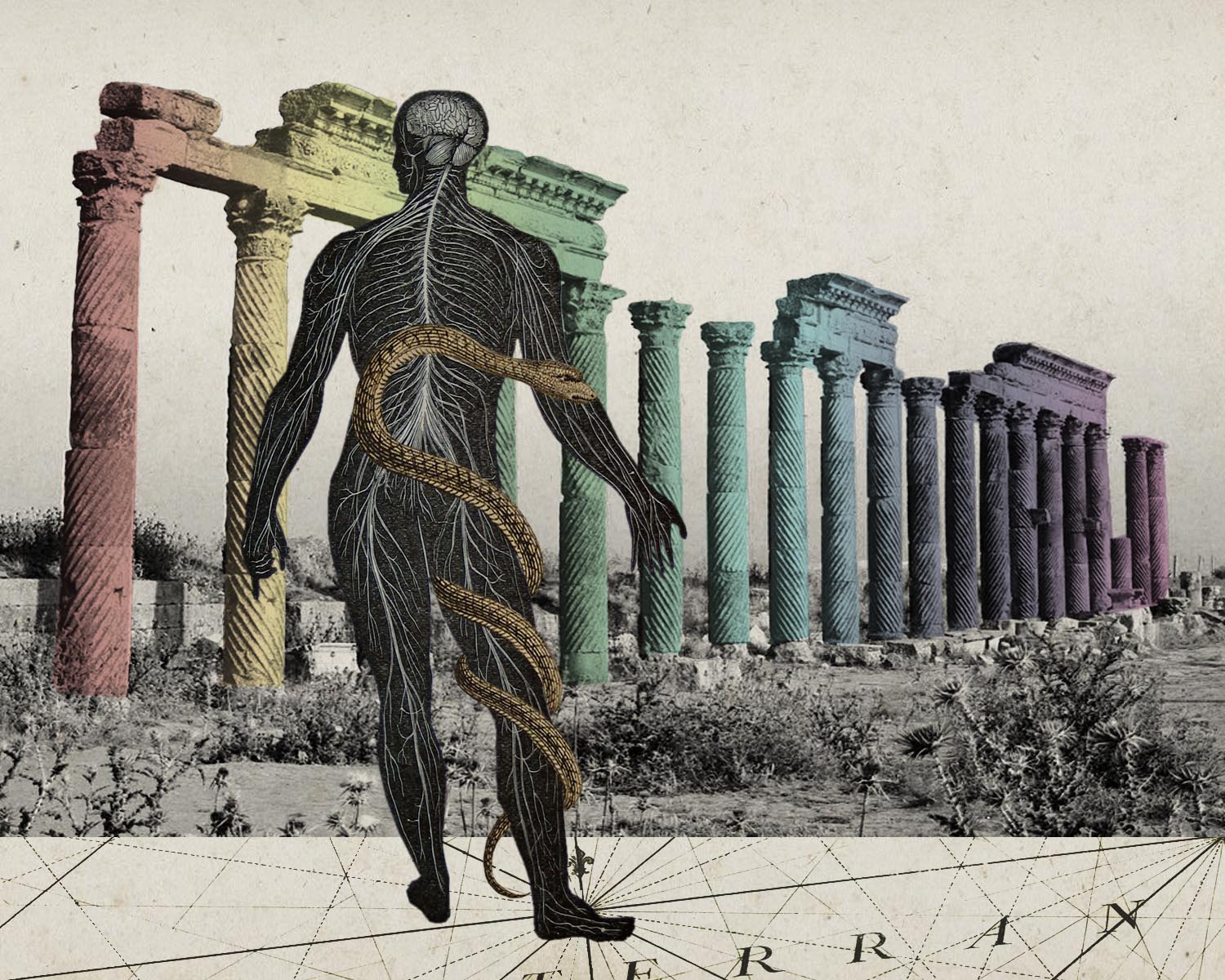To get at the root cause of any problem, a helpful question to ask is, “is this problem primarily caused by an individual or is it the result of the culture in which the problem is occurring?” Answering that question fairly and accurately usually leads to a clearer perspective on the direction required to solve the problem.

Perspective is important. During my morning meditation, I always give thanks for the First Light that occurred 14 billion years ago, the improbable formation of our lonely planet 4 billion years ago, and the beginning of human life somewhere between 200,000 and 300,000 years ago. It puts our lives, as we experience them today, in perspective.
Our personal perspective on life, or individual worldview, has a profound influence on the decisions we make, the words we use, the votes we cast, and the attitudes we hold toward others. Carl Jung posited that “everything that irritates us about others can lead to an understanding of ourselves.” Perhaps being more self-aware of how our annoyance with others may provide a mirror into our own souls might enable us to let go. Our ability to achieve that level of self-awareness is influenced by the culture in which we live. If we don’t have people in our lives who call us out on our own behavior, we are more likely to become tone deaf, i.e. unaware of how our words and behaviors impact others.
My 12 year old grandson is particularly astute at naming flimsy assertions or statements that don’t quite ring true. Two of his favorite words are “sus” and “cap.” When he says “sus” just loud enough to be heard, he means, “That sounds suspicious to me!” If he calls out “cap!” as he is prone to do, he means, “That can not possibly be true.” I’m sure he picked up those words in the culture in which he lives, but he expresses them in his own unique ways. As annoying as it can be to be challenged by a 12 year old, I actually find it refreshing that he is listening carefully and that he calls it like he sees it.
I apply this principle to my work with organizations. No, I don’t call out “sus” or “cap,” but the first question I ask clients when I’m asked to weigh in on an organizational problem is, “how much of this problem is about a few individuals and how much of it is a reflection of a deeper cultural problem?” This question often leads to an approach to change that may not have been considered without that inquiry. Oh, if only I had had “sus” and “cap” in my vocabulary when I first got started. But moving on.
The popular commentator, Glennon Doyle, suggests that “Compassion does not just happen. Pity does, but compassion is not pity. It’s not a feeling. Compassion is a viewpoint, a way of life, a perspective, a habit that becomes a discipline – and more than anything else, compassion is a choice we make that love is more important than comfort or convenience.” I think pity is more of an individual expression, whereas compassion seems to be nurtured by the cultures in which we live. It seems that, even in cultures in which compassion is the expressed goal, the practices often don’t reflect the principles. I guess that disconnect can be best described as the difference between orthodoxy and orthopraxy. Orthodoxy is about the written word. Orthopraxy is about conduct. If compassion is a habit that becomes a discipline, it is likely to be largely influenced by the norms and values of the cultures in which we live. I’m not sure that’s what Glennon meant, but I like her whole-hearted passion and her willingness to call out the temptations of comfort and convenience.
Perspectives about individual vs. cultural causes also play a major role in politics. Our world views, influenced by the cultures in which we live, have a more profound impact on our voting decisions than the conduct of the characters running for office. A recent study found that “a broad conservative cultural orientation – involving traditional sexual morality and gender views, religiosity, anti-immigration attitudes and related beliefs and values – is consistently associated with openness to authoritarian governance.” The study also found that a large portion of MAGA voters perceive authoritarianism as an efficient way to enforce social conformity and reinforce religious traditionalism. This MAGA openness to authoritarian governance exceeded attitudes from all five English-speaking democracies.
Abraham Lincoln asked, “What is conservatism? Is it not adherence to the old and tried, against the new and untried?” Even though Lincoln could not possibly have predicted the MAGA movement, It seems to me that he was getting at the heart of a cultural battle going on in the United States right now. There is a large group of people who prefer to go back to old ways of behaving as opposed to moving forward with more progressive ideas. There are fundamental differences between anachronistic thinking and possibilistic thinking. A primary cultural undercurrent is a wish by one group to return to a white, male, Christian supremacy; and the desire of another group to move forward with a multi-cultural, power-sharing diversity. Lincoln had it right.
I recently read a terrific novel by I. S. Berry, The Peacock and the Sparrow. In this book, Ms. Berry, a former CIA operations officer in the Middle East, explores the elusiveness of truth, the power of belief, and the universal longing to belong. The story takes place in the island country of Bahrain situated in the Persian Gulf between Saudi Arabia and Qatar. The book spins a captivating tale about a CIA spy who was collecting information on the Monarchy in Bahrain as well as on an opposition force that was trying to overthrow the King and his authoritarian regime. Both sides had their own narratives and their own beliefs and both wanted desperately to belong to the side of their choosing. The book gave me a new perspective on the situation we are facing now in America. Disinformation campaigns make truth seem elusive. Both sides believe strongly in the righteousness of their causes. And both sides desperately want to feel a sense of belonging in their chosen group. The outcome of this election depends to a large extent on the ability of each slate to tap into and mobilize the cultures they represent.
In the current contest between Trump-Vance and Harris-Walz, each candidate has distinctive characteristics and both sides have very different cultures influencing their beliefs. The predominant characteristic of Trump is narcissism. The predominant characteristic of Vance is opportunism. The predominant characteristic of Walz is authenticity. The predominant characteristic of Harris is drive – she is driven by her intellect, her joie de vivre, and by her dreams for a better America. To me, the most important values driving Republicans are the willingness to fight, the ability to entertain, and the readiness to fuel grievances – both real and imagined. The most important values driving Democrats are the willingness to provide a social safety net, the ability to provide a robust infrastructure, and the readiness to secure human rights and civil liberties.
Clearly, there are multiple issues that come into play as well. For example, inflation, immigration, national security, taxes, religion, gun control, regulation, etc. I believe, however, that the issues are simply manifestations of the cultural differences between the two sides. If this election were based solely on individual factors, I can’t even imagine a close battle. Who would choose narcissism and opportunism over authenticity and drive toward a larger purpose and common good? There is no way this election can be positioned as a battle between two individual candidates. Given the individual differences and real pathologies, there is simply no choice.
If this election is seen, however, as a cultural problem vs. an individual problem, then the perspective becomes very different. Now, the questions becomes: How do I communicate the truth? How do I give people a sense of belonging? How do I convey the idea that everyone grows when power is shared. At this point, it is not clear which culture is going to win. This election is no slam dunk because it is a cultural problem, not an individual problem – although it’s tempting, if you are a democrat, to focus on the individual differences because that seems like such an easy road to victory.
I’m hoping that Harris and Walz, with all the authenticity and joy they bring to the stage, will be able to communicate to enough people in both cultural camps that liberty, equality, justice, freedom and progress for all is possible. And I’m hoping, no matter how precarious this moment may seem, that the Light is still shining after 14 billion years and will continue to do so for billions and beyond. Let’s keep this in perspective and change the culture over time – starting with this election. May it be so.
Also published on Medium.



May it be so indeed! Thank you my friend!